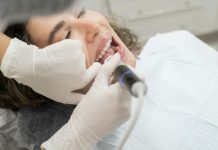
A recent study led by Professor Dr. Siegfried Geyer, Head of Medical Sociology at Hannover Medical School, reveals a growing health disparity between older and younger generations.
While older adults are experiencing better health and longevity due to improved living conditions and medical advances, younger individuals are facing increasing rates of diseases like type 2 diabetes and obesity.
The study calls for urgent preventive measures, particularly in workplace settings and nutrition.
The study builds on the 1980s thesis by American physician James Fries, which posited that improvements in living conditions would lead to a “compression of morbidity,” meaning that people would experience illness and disability later in life.
Professor Geyer’s team extended this concept to examine both “compression and expansion of morbidity,” the latter referring to an increase in illness occurring earlier in life.
The team reviewed national and international studies from 2005 to 2019, and also incorporated data from AOK Niedersachsen, representing a broad social structure.
They compared cohorts of the same age at different times to observe shifts in health statuses.
Key Findings
People born in the 1950s and 1960s are generally healthier and live longer than previous generations.
Rates of cardiovascular disease, stroke, lung cancer, and dementia have decreased or are manifesting later in life. The study confirms Fries’s thesis of morbidity compression for this group.
Younger Adults
In stark contrast, younger adults are experiencing increasing rates of type 2 diabetes and obesity.
The rate of obesity among people aged 25 to 55 almost doubled from 12.7% to 23.4% between 2004 and 2020. The study noted an “expansion of morbidity” in younger adults, characterized by illnesses manifesting earlier in life.
Implications
This divergence in health trajectories has significant implications for healthcare systems, social security, and the economy. A less healthy younger generation could strain these systems and drive up healthcare costs.
Professor Geyer argues that preventive measures are urgently needed. While traditional health risks were tied to physical labor and exposure to pollutants, modern risks are increasingly related to sedentary lifestyles and poor nutrition.
Recommendations
Workplace Interventions: Encourage physical activity and ergonomic workspaces to counter the sedentary nature of modern work.
Nutritional Education: Promote better understanding of calorie needs versus actual consumption, and encourage healthier eating habits.
Public Awareness: Increase public awareness about the risks of type 2 diabetes and obesity, especially among younger adults.
Conclusion
While the older generation seems to be benefiting from advancements in healthcare and improved living conditions, the younger generation is experiencing a concerning decline in overall health.
This divergence requires urgent attention from policymakers, healthcare providers, and individuals to implement preventive measures.
If you care about weight management, please read studies about berry that can prevent cancer, diabetes, and obesity, and 10 small changes you can make today to prevent weight gain.
For more information about obesity, please see recent studies about low-carb keto diet could manage obesity effectively and results showing popular weight loss diet linked to heart disease and cancer.
The research findings can be found in Deutsches Ärzteblatt International.
Follow us on Twitter for more articles about this topic.
Copyright © 2023 Knowridge Science Report. All rights reserved.



